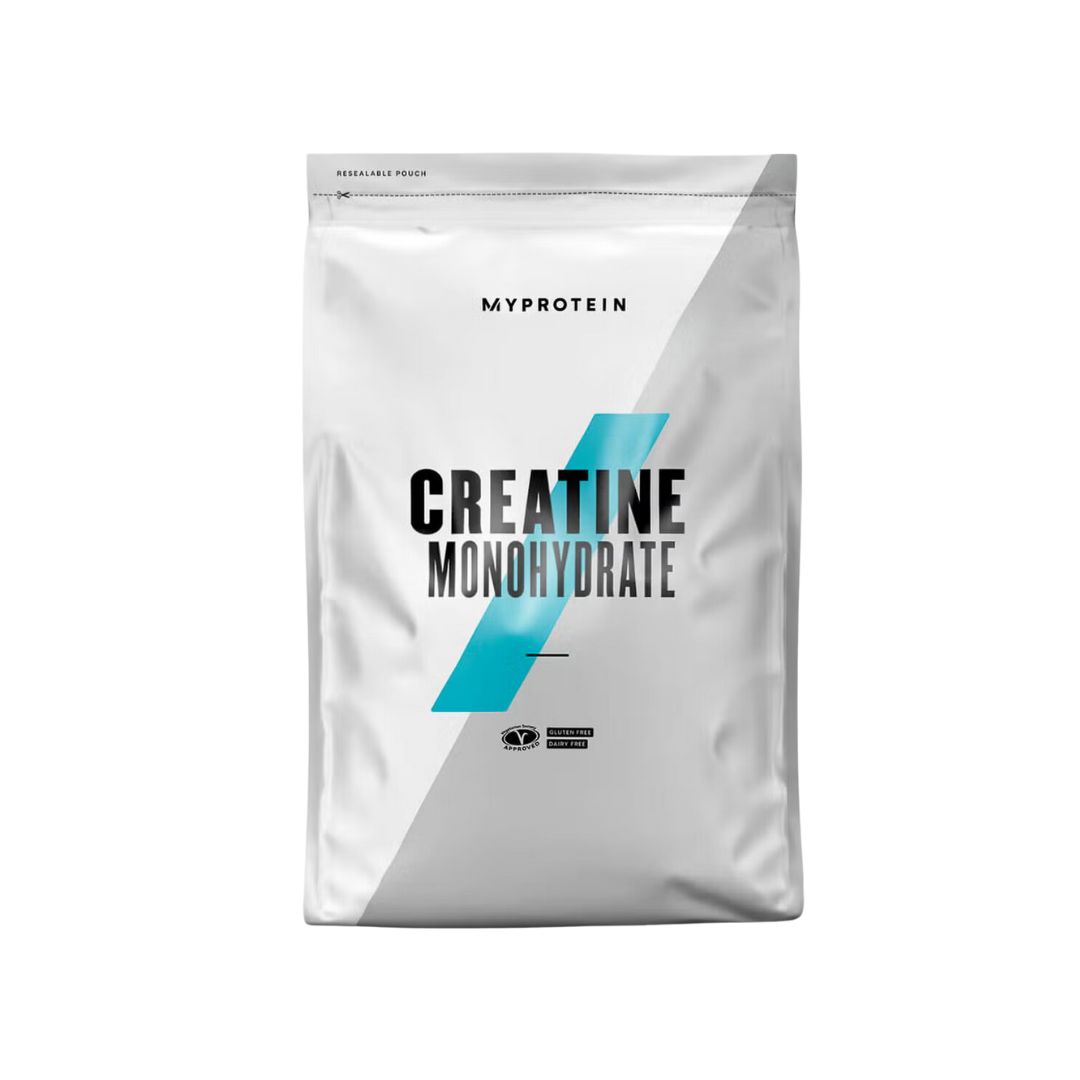Creatine is set to be the most popular supplement of 2024 - how it promises to boost your strength, power and performance
So, is it just for bodybuilders?


Celebrity news, beauty, fashion advice, and fascinating features, delivered straight to your inbox!
You are now subscribed
Your newsletter sign-up was successful
If you're sceptical about creatine benefits, join the queue. Adding to the likes of pre-workout and BCAA's in gym buzzwords you've heard but might not fully understand, creatine can seem daunting to the uninitiated.
Creatine has long been bandied around and often written off as a supplement for bodybuilders or those trying to get seriously stacked - and, unless you're a gym enthusiast who's done extensive research on the viral supp, it can feel like a whole new world reserved for athletes and bodybuilders.
That said, the average person like you and I can certainly benefit from the supplement, or so say the qualified experts we spoke to for this piece (and no, it's not just going to make you bulky). Still not sure what exactly it is? In short, creatine is a naturally occurring compound that plays a role in producing energy during high-intensity, short-duration activities, such as weightlifting and sprinting. Stored in muscles and used for quick bursts of energy, it can be found in small amounts in certain foods but can be supplemented, too.
The supplement is only getting more popular, too. According to research by the Industry Research Co, the global creatine market was valued at 285.99 million USD last year and is only expected to expand, forecasted to reach a staggering five million by 2028. You need only look at TikTok to see users raving about its benefits, too - there are already over three billion views on the #creatine hashtag alone.
Still on the fence? We've spoken to top industry experts to get their take, once and for all, plus spoken to one person who's been supplementing creatine for x now. Keep scrolling, and don't miss our guides to the best protein powders, clear protein, and pre-workout for women, while you're here.
It looks set to be the supplement of 2024: 5 creatine benefits to know about
When was creatine developed?
Daniel Herman, a qualified nutritionist from the National Academy of Sport Medicine and a speed and agility coach, is a huge advocate for supplementing creatine.
“Creatine is my favourite supplement of all time," he shares. Why? Well, "it's probably the most well-researched and efficacious." He goes on to explain that Professor Paul Greenhaff, an expert in muscle metabolism and a member of the faculty of medicine and health sciences at the University of Nottingham, and Professor Ron Maughan, an expert in sport and exercise nutrition at Loughborough University and chair of the Nutrition Working Group of the International Olympic Committee, pioneered a lot of the research into it in the 1990s.
Celebrity news, beauty, fashion advice, and fascinating features, delivered straight to your inbox!
“Creatine was first identified in 1832 when it was discovered in meat," Herman goes on. "However, it wasn't until the 1970s that researchers began to explore its potential benefits for improving athletic performance. In the 1990s, creatine supplements gained global popularity as a sports supplement.”
What are the benefits of creatine?
Studies, like this extensive 2021 paper carried out by an internationally renowned team of research experts, conclude that creatine not only increases strength, fat-free mass, and muscle morphology, but "has the potential to be a multifactorial therapeutic intervention across the lifespan in females, with little to no side effects."
Herman agrees and adds that the simplest appeal of taking the substance is increased strength and power. Supplementing is particularly beneficial during high-intensity, short-duration activities, he goes on, and may contribute to muscle growth by increasing the water content in your muscle cells and promoting protein synthesis.
So what does this actually look like? “Creatine can enhance performance in activities that require short bursts of intense effort, such as weightlifting, sprinting, and high-intensity interval training," the expert shares.
What are the cons of creatine?
While there are clearly lots of benefits of adding the supplement to your rotation, Herman does note that creatine will impact individuals differently.
“While most people tolerate creatine well, individual responses can vary, and some may not experience significant benefits," he warns. Some, for example, may experience bloating due to water retention, generally as a result of not drinking enough water when taking these products, but this is largely avoidable. Case in point: this 2021 study shows that creatine supplementation is relatively well tolerated, especially if you take the recommended dosage (i.e. 3-5 g/day or 0.1 g/kg of body mass/day).
"Studies have also been carried out to check if caffeine reduces the effects of creatine, but found to have no significant impact," he goes on.
As always, it's important to do your research before deciding if it's for you. We always advise checking with your medical advisor or GP before supplementing if you have any concerns.
What about your kidneys?
Good question. This 2021 study published in the Journal of the International Society of Sports Nutrition looked at common misconceptions and questions around creatine, including whether creatine leads to kidney issues.
Concluding that there is no scientific evidence to date to back this, the researchers confirmed that creatine usage doesn't cause kidney failure.
"I supplemented creatine for months - and definitely noticed some differences."
Kieran Sheridan, 35, a physiotherapist and a co-founder of a sport and physiotherapy store, took creatine for a few months. Here's how they got on.
“I started taking creatine powder two to three times a week after seeing it recommended online for before your workouts. Following the guidelines, I added a spoonful to a shaker bottle and mixed with water to drink before and during my workout. Because I didn't love the taste, I'd sometimes add sugar-free flavours or put my creatine powder in a bottle of vitamin water to boost the taste."
"The main reason I started was because I wanted to push through some plateaus that I had difficulty with. I'd read that it gives you extra energy for your sessions - and while it did, I didn't notice the effects as much as I'd hoped."
“I felt stronger at the beginning of my workouts, but I'd always still feel exhausted at the end. While the supplement certainly boosted my energy, I didn't notice any other differences."
Shop creatine now:

Faima is a freelance writer and editor who’s worked at national newspapers, online and print publications. She also has her own Substack on love and life.
